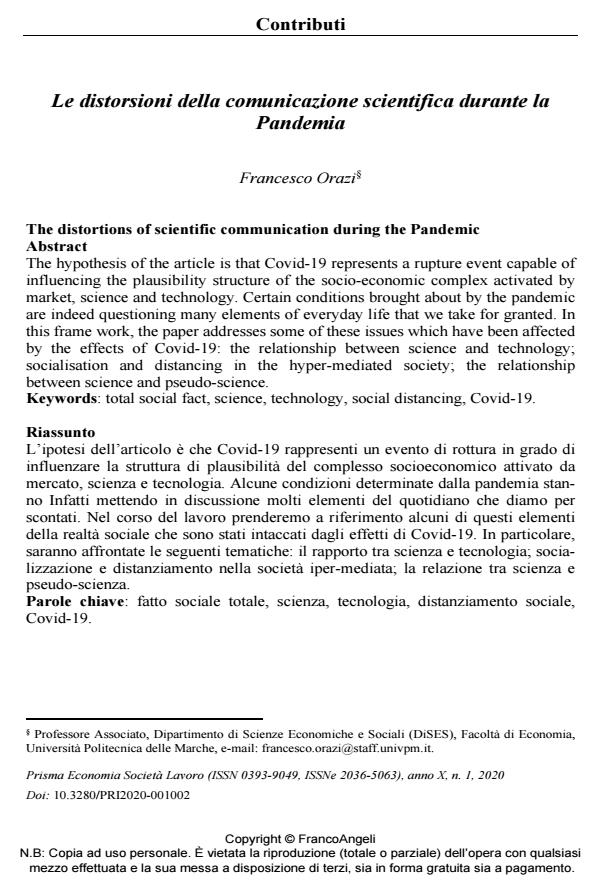The distortions of scientific communication during the Pandemic
Journal title PRISMA Economia - Società - Lavoro
Author/s Francesco Orazi
Publishing Year 2021 Issue 2020/1
Language Italian Pages 16 P. 10-25 File size 216 KB
DOI 10.3280/PRI2020-001002
DOI is like a bar code for intellectual property: to have more infomation
click here
Below, you can see the article first page
If you want to buy this article in PDF format, you can do it, following the instructions to buy download credits

FrancoAngeli is member of Publishers International Linking Association, Inc (PILA), a not-for-profit association which run the CrossRef service enabling links to and from online scholarly content.
The hypothesis of the article is that Covid-19 represents a rupture event capable of influencing the plausibility structure of the socio-economic complex activated by market, science and technology. Certain conditions brought about by the pandemic are indeed questioning many elements of everyday life that we take for granted. In this frame work, the paper addresses some of these issues which have been affected by the effects of Covid-19: the relationship between science and technology; socialisation and distancing in the hyper-mediated society; the relationship between science and pseudo-science.
Keywords: total social fact, science, technology, social distancing, Covid-19.
- Intersoggettività interrotta e salute mentale di bambini e adolescenti durante e dopo il Covid-19: i risultati di una ricerca Davide Lucantoni, Francesco Orazi, Federico Sofritti, in PRISMA Economia - Società - Lavoro 1/2023 pp.11
DOI: 10.3280/PRI2022-001002 - Mental well-being of children and adolescents during COVID-19: evidence from the Italian context and possible future developments Francesco Orazi, Federico Sofritti, Davide Lucantoni, in Frontiers in Sociology 1387030/2024
DOI: 10.3389/fsoc.2024.1387030
Francesco Orazi, Le distorsioni della comunicazione scientifica durante la Pandemia in "PRISMA Economia - Società - Lavoro" 1/2020, pp 10-25, DOI: 10.3280/PRI2020-001002